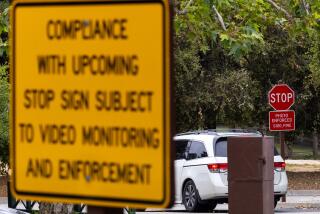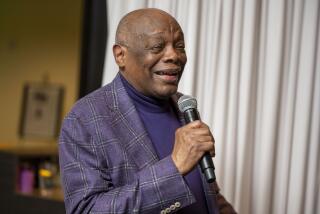Inquiry by FPPC on Traffic Tickets Finds No Conflict
- Share via
SACRAMENTO — The state Fair Political Practices Commission has determined that Assembly Speaker Willie Brown and Assemblywoman Cathie Wright did not violate state conflict-of-interest laws by interceding with local authorities regarding traffic tickets received by Wright’s daughter.
A spokeswoman for the political watchdog agency said that after reviewing a report by Ventura County Dist. Atty. Michael Bradbury that harshly criticized Brown (D-San Francisco) and Wright (R-Simi Valley), “there didn’t seem to be a basis for the commission to act.”
Bradbury’s report, issued last May, said Wright “demonstrated a clear pattern” of improperly intervening with local police and judges in an effort to keep her 24-year-old daughter, Victoria, from losing her license or going to jail as the result of 27 traffic citations--including 24 speeding tickets--she received since 1981.
The district attorney’s report said Wright visited Ventura Municipal Judge Bruce A. Clark at his home to discuss two speeding tickets against Victoria then pending before the judge, and asked Simi Valley police to void two other traffic citations.
But in a letter to Wright, FPPC enforcement counsel Melodee A. Anderson said “there is insufficient evidence to establish that you violated the conflict-of-interest provisions” of the state’s Political Reform Act.
Moreover, she concluded, “there is insufficient evidence to establish” that Wright acted or purported to act as a representative of the Legislature when she communicated with various local officials about her daughter.
Even if a conflict had been established, the FPPC’s enforcement power does not extend to conflicts involving elected state officials, the letter said. Although the conflict laws apply to state lawmakers, the Legislature exempted itself from penalties, an FPPC spokesman said.
More to Read
Get the L.A. Times Politics newsletter
Deeply reported insights into legislation, politics and policy from Sacramento, Washington and beyond. In your inbox twice per week.
You may occasionally receive promotional content from the Los Angeles Times.










